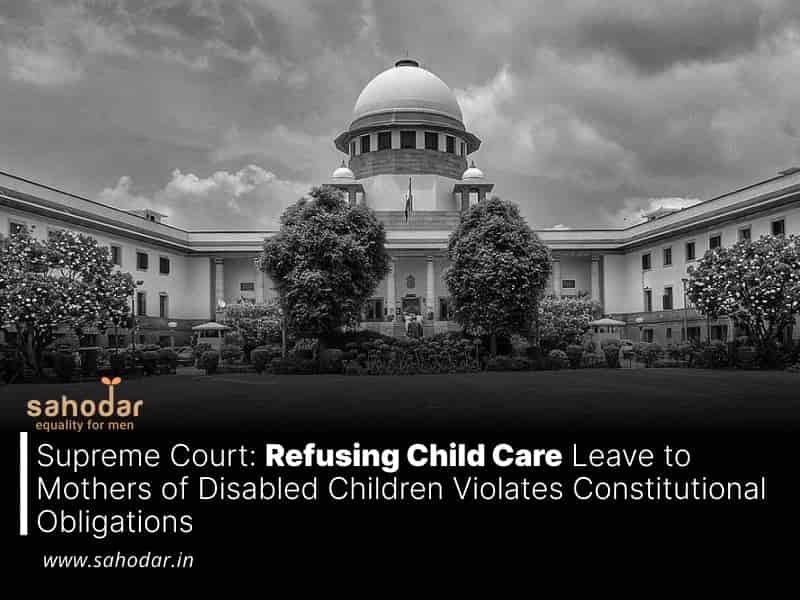The Court observed that denying child care leaves to mothers would violate the Constitutional duty to ensure equal protection of women in the workforce.
On Monday, the Supreme Court underscored the Constitutional obligation for women’s equal participation in the workforce, emphasizing the significance of Child Care Leaves for mothers of disabled children in a groundbreaking judgment. Chief Justice of India (CJ) DY Chandrachud and Justice JB Pardiwala, forming the Bench, concluded that denying Child Care Leave (CCL) to mothers of disabled children would contravene this Constitutional duty to uphold gender equality in employment.
“Child Care Leave subserves an important Constitutional objective where women are not denied an equal opportunity in the workforce. This (a denial of CCL) may compel a mother to leave the workforce and it applies to a mother more who has a child with special needs,” the Court said.
In a case involving an assistant professor employed at a college in Nalagarh, Himachal Pradesh, the Court issued its ruling. The professor had been denied leave to care for her son, who had been grappling with genetic disorders since birth, on the grounds that she had utilized all her allotted leaves.
“We are of the view that the petition raises a serious matter of concern. The petitioner has raised the Rights of Persons with Disabilities Act. The commissioner has indicated on affidavit that no policy of CCL has been formulated. Participation of women in the workforce is not a matter of privilege but a constitutional requirement and the State as a model employer cannot be oblivious of this,” the Court ruled.
The Court then directed the Himachal Pradesh State government to amend its Child Care Leave (CCL) policy to align with the stipulations of the Rights of Persons with Disabilities Act, 2016.
“Ultimately, the plea does entrench on areas of policy and areas of State policy must be synchronous with Constitutional safeguards. We direct the State of Himachal Pradesh to reconsider CCL to mothers consistent with the RPWD act for mothers who are bringing up mothers of children with special needs,” the Court ordered.Top of Form
The Court mandated the formation of a committee to oversee these changes. This committee, to be established by the State’s Chief Secretary, will comprise the State Commissioner under the Rights of Persons with Disability Act, along with the Secretaries of the Department of Women and Child Development and the Social Welfare Department.
Tasked with liaising with the Secretary of the Central government’s Social Welfare Department, this committee is required to submit a report by July 31, 2024.
Additionally, the Court has requested a response from the Central government regarding the issue.
“Notice of these proceedings be issued to Union. Let them be impleaded. Let ASG Aishwarya Bhati assist the Court,” the Court ordered.
The Court recalled that in 2010, the Central government had decided to grant Child Care Leave (CCL) to parents of differently abled children, with the age limit initially set at 22 years (later removed).
Rule 43C of the Central Civil Service (Leave) Rules, 1972 governed the provision of such child-care leaves. The petitioner, an assistant professor, had previously approached the Himachal Pradesh High Court seeking relief after being denied further leave once exhausting her sanctioned leaves.
Upon the High Court’s dismissal of her plea, she appealed to the Supreme Court.
The appeal before the Supreme Court was presented by advocate Pragati Neekhra.

